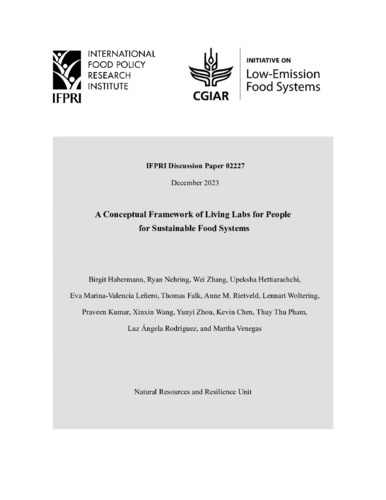A conceptual framework of living labs for people for sustainable food systems
Abstract
Innovation spaces are often dominated by linear, top-down approaches, with the transfer of technology being seen as the solution to many problems rather than trying to understand which innovation processes people are engaging with themselves. In other words, barriers to progress are typically viewed as issues of technology adoption, not as part of the innovation process itself. This study contributes to changing the paradigm by proposing a living lab approach, which considers innovation as an adaptive process where stakeholders co-produce knowledge and collaborate based on inclusivity and empowerment. Our specific concept for this approach is called a Living Lab for People (LL4P). This conceptual paper outlines a framework to guide the development of a LL4P that remains flexible to be adapted for specific sites. While we seek to identify common denominators, we recognize the necessity for such a framework to remain open enough to be adaptable for varied contexts. Consequently, the framework draws on the living lab literature but tailors existing approaches for sustainable food system transformation and puts people (men, women, and marginalized groups among key food system actors) at the center of innovation processes with a clear intention to address power and social inequity. We draw on specific cases in China, Colombia, Kenya and Vietnam as learning grounds for formulating LL4Ps through locally led innovation processes. Based on our learnings and consultations, we define a LL4P as an inclusive and diverse space for people to advance their socio-technical innovation processes and associated modes of governance within a facilitated organizational structure. The principles of LL4Ps include co-production, gender equality and social inclusion, governance and institutional sustainability to advance existing and novel innovation processes. The practical experiences from applying this framework in the four case studies indicate alternative pathways for transforming the food system toward a sustainable and socially equitable trajectory through the establishment of a LL4P.

